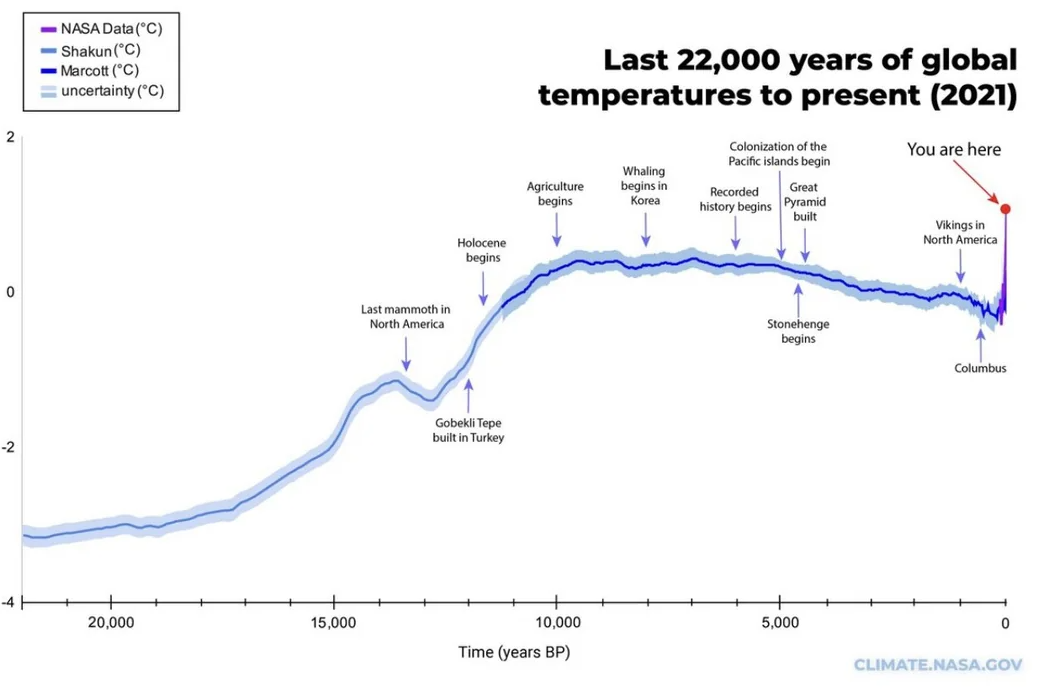The Effects Of Climate Change On NYC
Climate change is a global phenomenon which is affecting the entire planet, and its impacts are being felt in various ways. One of the most vulnerable areas to climate change is New York City (NYC), which is located on the coast and is already experiencing the effects of sea-level rise and extreme weather events. Here are some ways in which climate change could impact NYC.
Source: climate.nasa.gov
Extreme weather events
Climate change is causing more frequent and intense extreme weather events such as hurricanes, heatwaves, and winter storms. These events can cause significant damage to the city's infrastructure, including buildings, bridges, and roadways. In addition, they can cause power outages, disrupt transportation systems, and lead to loss of life. Extreme weather events can also increase the risk of wildfires, which can be devastating to the city's green spaces and wildlife.
The escalating global temperatures attributed to climate change have triggered a surge in the frequency and intensity of extreme weather events worldwide. As greenhouse gas emissions continue to escalate, the Earth's atmosphere becomes increasingly laden with heat-trapping gases, leading to a gradual but significant rise in average global temperatures. This phenomenon sets the stage for a cascade of atmospheric disturbances, including more frequent and severe heatwaves, droughts, hurricanes, and intense precipitation events.
The warming of the oceans contributes to the intensification of tropical storms and hurricanes, amplifying their destructive potential and causing widespread devastation in coastal regions. Additionally, the melting of polar ice caps and glaciers contributes to rising sea levels, exacerbating the impact of storm surges and coastal flooding, posing a significant threat to communities situated along vulnerable coastlines. As extreme weather events continue to wreak havoc on ecosystems and human settlements, the urgency to curb carbon emissions and implement sustainable measures to mitigate climate change has become an imperative global priority.
Public Health
Climate change is also affecting public health in NYC. Rising temperatures can lead to an increase in heat-related illnesses, such as heat stroke and dehydration. In addition, air pollution can worsen during heatwaves, leading to respiratory problems, especially for vulnerable populations such as children and the elderly. Increased flooding can also lead to the spread of waterborne diseases such as cholera and typhoid fever.
Economic Impacts
Climate change can also have significant economic impacts on NYC. Rising sea levels and increased flooding can damage property and infrastructure, leading to significant costs for repairs and rebuilding. In addition, extreme weather events can disrupt transportation systems and lead to lost productivity, which can have a significant impact on the city's economy. Rising temperatures can also lead to decreased tourism, as visitors may avoid the city during times of extreme heat.
Source: Squarespace/Unsplash
Increased Flooding
As temperatures rise, the sea-levels in NYC are also rising, and this is causing an increase in flooding. In the last decade, NYC has experienced some of the most severe flooding in its history, and this trend is expected to continue.
According to the New York City Panel on Climate Change, sea levels are expected to increase between 8 to 30 inches by the 2050s, and as much as 15 to 75 inches by the end of the century. Sea level rise will lead to frequent, potentially daily, tidal inundation in some especially low-lying neighborhoods. This type of flooding causes less damage than extreme storms, but can be a nuisance and has significant long-term impacts on public safety and City services. The impact of flooding includes the subway system which could lead to a significant disruption of the city's infrastructure and economy.
Migration
Climate change impacts can also lead to migration, as people seek to escape areas that are most vulnerable to its effects. This could lead to an influx of people into NYC, which could put additional strain on the city's infrastructure and resources.
In conclusion, climate change is a global phenomenon that is affecting NYC in various ways. The city is particularly vulnerable due to its location on the coast, and it is already experiencing the effects of sea-level rise and extreme weather events. If these trends continue, they could have significant impacts on the city's infrastructure, economy, and public health. It is therefore essential that measures be taken to mitigate the impacts of climate change and to adapt to its effects where necessary.



